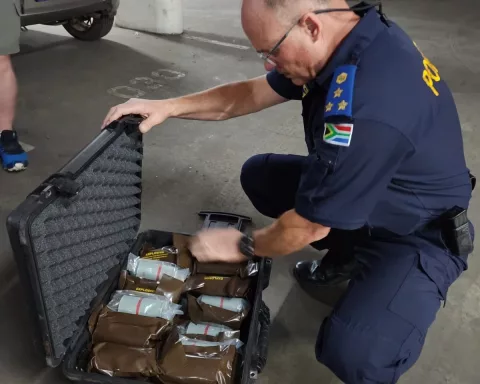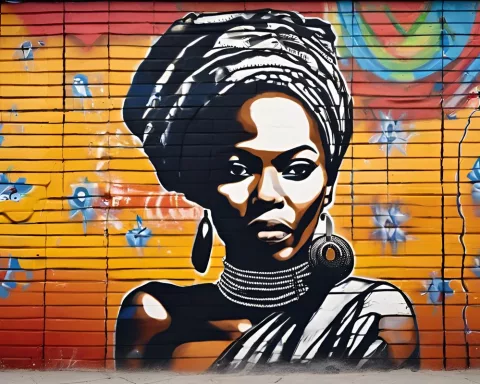Johannesburg faces a major challenge with illegal connections to water and electricity services, costing billions and endangering officials’ lives. The city is considering extreme measures, such as disconnecting troublesome areas’ electricity supply and imposing hefty fines to combat the problem. However, disconnecting entire areas may harm innocent residents and potentially foster criminal activity. Education, community engagement, and technological solutions such as smart meters or remote monitoring systems may offer a more effective, long-term solution.
What is the challenge Johannesburg faces with illegal utility connections?
Johannesburg is battling the widespread illegal connections and reconnections of electricity and water services, costing billions of rands and endangering lives of officials. City officials face assault, threats, or hindrances when attempting to access meters or disconnect unauthorized services. The city is contemplating a complete disconnection of electricity supply to troublesome areas and is ready to take extreme measures such as filing criminal charges, effecting arrests, imposing hefty fines, and disconnecting electricity and water supply to those who unlawfully connect themselves to these services.
Johannesburg’s Battle with Illegal Utility Connections
In Johannesburg, city officials are confronted with a formidable task: tackling the widespread illegal connections and reconnections to electricity and water services, which cost the city billions of rands and endanger the lives of officials. A recent statement by Kgamanyane Maphologela, Communications & Stakeholder Management at the City of Johannesburg, depicted a bleak scenario where city officials face assault, threats, or hindrances when attempting to access meters or disconnect unauthorized services. The situation has become so severe that the city is contemplating a complete disconnection of electricity supply to troublesome areas.
During September 2023 alone, officials were denied access to the properties of at least 2,605 customers, who collectively owe the city more than R464.5 million in water service debt. Additionally, 323 customers with over R46.6 million in water services debt intimidated or denied access to Johannesburg Water Meter Readers. That same month, the city battled to collect over R71.3 million owed for electricity, as City Power technicians encountered intimidation from 143 customers.
According to Maphologela, these customers boldly reconnect themselves to services after disconnections and are uncooperative with the city. Tebogo Moraka, the city’s Group Chief Financial Officer, stressed that such lawlessness and intentional endangerment of officials’ lives will not be tolerated. The city is ready to take extreme measures, such as filing criminal charges, effecting arrests, imposing hefty fines, and disconnecting electricity and water supply to those who unlawfully connect themselves to these services.
Intensifying Efforts to Combat Illegal Connections
To counter the growing problem of illegal connections, the City of Johannesburg is escalating its disconnection blitz against these activities. Moraka cautioned that the city will not yield to such lawlessness. Instead, it will rally crucial departments, including Johannesburg Metro Police, Revenue, City Power, and Johannesburg Water, to bolster its operations and collect every cent owed to the city.
This assertive approach, however, raises questions about the potential impact on communities that may become collateral damage. Entirely disconnecting the electricity supply could lead to disastrous consequences for innocent residents, businesses, and service providers in affected areas. Moreover, the proposed strategy might inadvertently foster an environment in which criminal elements flourish, further compounding the city’s issues.
Exploring Solutions through Education, Community Engagement, and Technology
One potential solution may involve educating communities about the dangers of illegal connections and the significance of paying for services. Public awareness campaigns, community workshops, and school-based programs could cultivate a culture of responsibility and respect for the rule of law. Additionally, the city could adopt a more collaborative approach by working with local leaders and community organizations to identify and address the root causes of non-payment and illegal connections.
Another path worth considering is the implementation of innovative technological solutions. For instance, smart meters could provide city officials with real-time data on electricity and water usage, making monitoring and enforcement more efficient. Similarly, incorporating drones or other remote monitoring systems could enhance the safety of officials responsible for accessing meters or disconnecting unauthorized services.
Striking a Balance for Long-term Success
In conclusion, Johannesburg’s struggle against illegal connections and reconnections poses a complicated and multifaceted challenge. While robust enforcement measures are undoubtedly necessary, a more nuanced and collaborative approach that incorporates education, community engagement, and technological innovation could hold the key to long-term success. As the city wrestles with this issue, it must find a delicate balance between protecting its officials and preserving the well-being of its diverse and vibrant communities.
1. What is Johannesburg’s challenge with illegal utility connections?
Johannesburg is facing a major challenge with widespread illegal connections and reconnections to electricity and water services, costing the city billions of rands and endangering the lives of officials.
2. What measures is the city considering to combat the problem?
The city is contemplating extreme measures, such as completely disconnecting electricity supply to troublesome areas, filing criminal charges, effecting arrests, imposing hefty fines, and disconnecting electricity and water supply to those who unlawfully connect themselves to these services.
3. What are the potential consequences of disconnecting entire areas?
Entirely disconnecting the electricity supply could lead to disastrous consequences for innocent residents, businesses, and service providers in affected areas. Moreover, the proposed strategy might inadvertently foster an environment in which criminal elements flourish, further compounding the city’s issues.
4. What are some potential solutions to the problem?
One potential solution may involve educating communities about the dangers of illegal connections and the significance of paying for services. Additionally, the city could adopt a more collaborative approach by working with local leaders and community organizations to address non-payment and illegal connections. Technological solutions, such as smart meters or remote monitoring systems, could also help in monitoring and enforcement.
5. What is the city doing to intensify efforts to combat illegal connections?
The City of Johannesburg is escalating its disconnection blitz against these activities, rallying crucial departments, including Johannesburg Metro Police, Revenue, City Power, and Johannesburg Water, to bolster its operations and collect every cent owed to the city.
6. How are customers responding to disconnection attempts?
Customers boldly reconnect themselves to services after disconnections and are uncooperative with the city. In September 2023 alone, officials were denied access to the properties of at least 2,605 customers, who collectively owe the city more than R464.5 million in water service debt.
7. What are the potential consequences of not addressing the problem?
The problem of illegal connections could potentially foster an environment in which criminal elements flourish, endangering the lives of officials and innocent residents. Additionally, the city could lose billions of rands in revenue.
8. What is the city’s long-term solution to the problem?
The city is exploring solutions through education, community engagement, and technological innovation. A more nuanced and collaborative approach that incorporates these elements could hold the key to long-term success.












